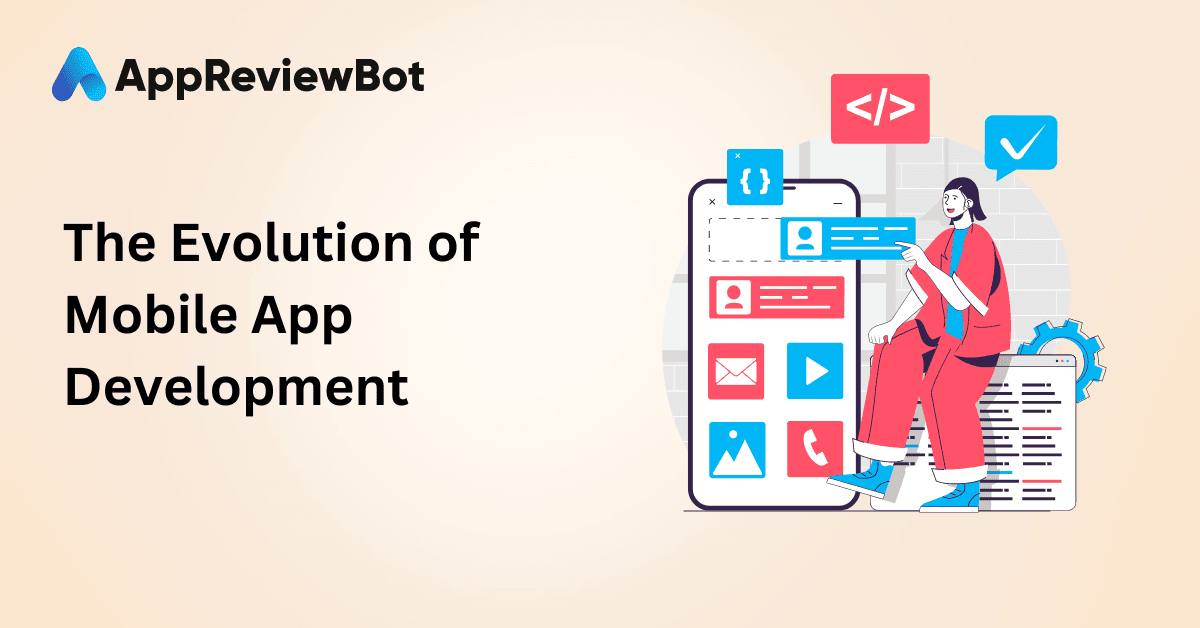The Evolution of Mobile App Development
March 3, 2023

Since the invention of smartphones, mobile app development has advanced quickly, and its trajectory has been remarkable. Over the past ten years, the environment has undergone significant transformation, and things are just getting better.
This article will examine the development of mobile apps and highlight the significant turning points that have influenced it.
Simple standalone apps for certain functions like email, messaging and calendar generation dominated the early years of mobile app development. These apps were frequently created natively, which means that they were intended to function just on a specific platform, like iOS or Android. Platform-specific languages, such as Objective-C for iOS and Java for Android, were used to create native apps, necessitating the knowledge of multiple programming languages from the developers
The Emergence of Hybrid App Development
Hybrid app development became a realistic alternative as the need for increasingly complex and feature-rich apps grew. By utilizing a single codebase that can operate flawlessly across various platforms, hybrid apps combine the best of both worlds. These apps are created with HTML, CSS, and JavaScript and are frequently enclosed in a native container to give them access to the hardware and other built-in features of the device.
The Rise of Cross-Platform App Development
Thanks to resources like React Native and Xamarin, cross-platform app development has grown in popularity in recent years. These solutions shorten development cycles and lower costs by enabling developers to create code in a single language and deliver it across various platforms. Developers may still profit from the advantages of hybrid programming while creating apps that have a native appearance and feel thanks to cross-platform development.
Cloud-Based Technology's Entrance
Mobile app development has been transformed by cloud-based technology, which enables developers to create apps that are more effective and scalable. Instead of storing data locally on a device, cloud-based apps store it on remote servers, allowing users to access it from any device with an internet connection. Because developers can quickly update and manage apps remotely, this technology also makes the process of creating apps more effective.
The Effects of Machine Learning and Artificial Intelligence
The creation of mobile apps has been significantly impacted by the development of artificial intelligence and machine learning. Apps may now be developed that learn from user activity and adjust in accordance, giving users a more tailored experience. Apps with AI capabilities may evaluate user data, forecast user activity, and automate tasks, improving their effectiveness and usability.
The Internet of Things (IoT)
The Internet of Things (IoT) has created new possibilities for the creation of mobile applications. Apps that can interface with IoT-enabled devices like smart homes and wearables are necessary to give consumers real-time data and insights. The need for developers who can construct apps that link and communicate with a range of devices has been fueled by this technology.
Conclusion
Since the earliest days of straightforward standalone applications, mobile app development has advanced significantly. App development has grown more effective, scalable, and personalized with the growth of hybrid and cross-platform development, cloud-based technology, AI and machine learning, and the IoT. Future developments in trends and technologies are likely to have an exciting and unforeseen impact on how mobile app development develops.